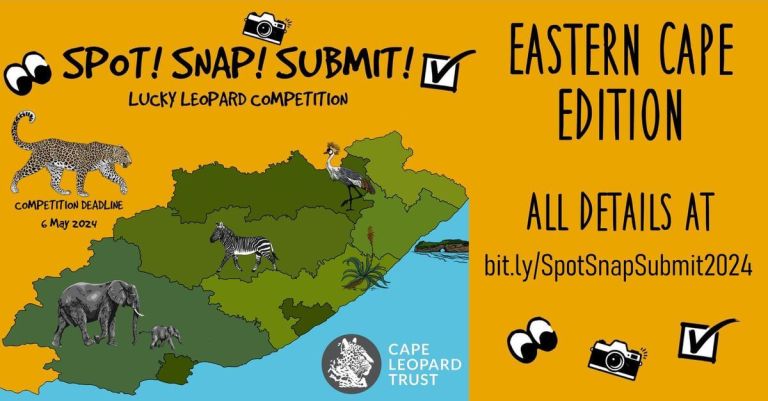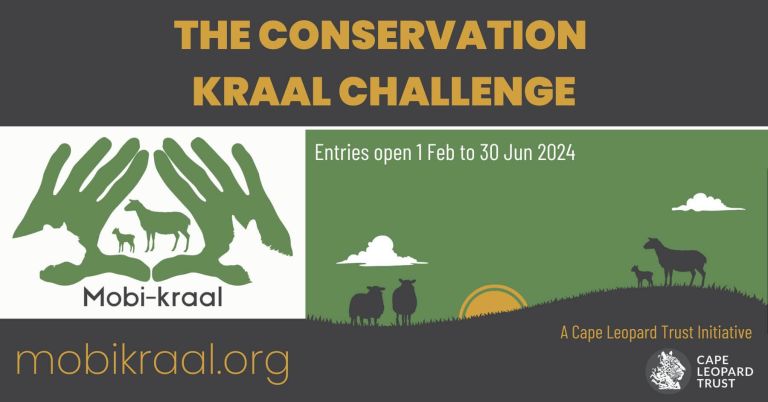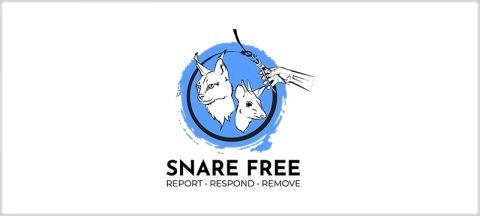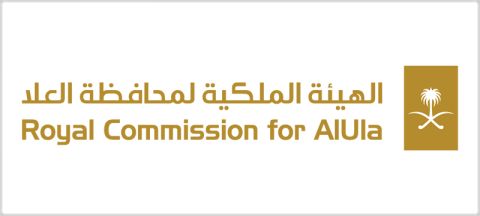The CLT Scientific Advisory Board has been established to create a collaborative academic platform to advise on predator focused scientific research. Using The Cape Leopard Trust as its overarching identity the board will assess research project applications and record these at a central point, thus ensuring that research is not duplicated and that predator research standards are continually improved. The board will encourage greater cooperation between academic institutions, motivating new partnerships and increasing access to potential funding opportunities.
We would like to introduce the members of the board:
Prof Bill Horsnell (Research Board Chair ) – University of Cape Town
Prof Bill Horsnell is a lecturer and researcher at the Institute of Infectious Diseases and Molecular Medicine, University of Cape Town. Bill has had a long term interest in natural history, which led him to undertake a degree in Applied Zoology at the University of Leeds. Here he developed an interest in parasitology and biochemistry, which resulted in a PhD at the Royal Veterinary College in cellular biology and biochemistry. His in-depth knowledge of the local and international research environment makes him an ideal choice to facilitate and chair the newly established advisory board. Bill has been a part of The Cape Leopard Trust since its inception and has agreed to chair the Scientific Advisory Board for its first three years.
Dr Jacqueline Bishop – University of Cape Town
Jacqueline Bishop’s research interests centre on the use of molecular, behavioural and ecological data to understand the relative contributions of genetic drift and selection in shaping variation in natural populations of vertebrates. This involves a range of molecular and analytical approaches to elucidate evolutionary genetic history from the level of individuals and parentage assignment to the analysis of genes, populations and species. Jacqueline has an ongoing interest in the evolutionary drivers of mate choice behaviour, together with understanding the relative importance of adaptive genetic variation in free-living populations. Working within this framework Jacqueline uses a number of taxa as models to test current theories. These have included crocodiles, rhinoceros, baboons and mole-rats, and more recently seabirds, bats and marine fish.
Dr Alison Leslie – Stellenbosch University
Dr Alison Leslie of the Department of Conservation Ecology & Entomology at Stellenbosch University is collaborating with the CLT on a number of exciting leopards and other carnivore projects both in South Africa (Gouritz and Northern Cape leopard projects) and in Malawi. Former Cape Leopard Trust CEO, Quinton Martins, joined the department as a research fellow at the beginning of 2014 and still holds this position.
Alison has a PhD and MSc in vertebrate ecology & physiology from Drexel University in the USA and a BSc Zoology & Botany from the University of Stellenbosch. Her MSc focused on the nesting ecology of leatherback sea turtles in Central America and her PhD on the ecology of Nile crocodiles in the then named Greater St. Lucia Wetland Park. Alison’s research interests are broad but lie primarily in the field of wildlife management, including human/wildlife conflict. She is a senior lecturer in wildlife management in the department and has worked extensively in South Africa, Costa Rica, Botswana, Zambia, Malawi and Burundi. Her current research focus is in Majete Wildlife Reserve in Malawi in collaboration with African Parks Pty (Ltd). Alison has published numerous peer-reviewed papers and is continuously presenting her work at national and international conferences. She has also participated in 20 television documentaries, produced by National Geographic, Animal Planet, the Discovery Channel and the BBC, to mention a few.
Prof Dan Parker – University of Mpumalanga
Prof Parker is an Associate Professor at the University of Mpumalanga and continues to maintain research links with the Rhodes University Department of Zoology and Entomology. Dr Parker trained as zoologist under the mentorship of Professor Ric Bernard at Rhodes University completing an MSc on giraffe feeding biology in 2004 and a PhD on the impact of elephants on the ecosystems of the Eastern Cape, South Africa in 2008. In between MSc and PhD studies, he took a research "gap year" and worked for Oxford University's Hwange Lion Research Project in Zimbabwe alongside Drs Andy Loveridge and Zeke Davidson igniting his keen interest in carnivore biology.
Dr Frans Radloff – Cape Peninsula University of Technology
Dr Frans Radloff has a PhD in Botany, MSc in Zoology, BSc (Hons) in Wildlife Management and a BSc (Agric) in Animal and Pasture Science. His PhD work at Stellenbosch University (2005-08) focused on the ecology of large herbivores native to the coastal lowlands of the Fynbos Biome in the Western Cape. Master’s degree research followed at the Mammal Research Institute, University of Pretoria (2000-01) pertained to the relationship between the size of large predators and their prey in the Lowveld area of Mpumalanga. For his Honours degree (1996), Frans was involved in management planning of the Quiçama National Park in Angola. During 2009/10, as a postdoctoral student, he studied the diet of the Nile crocodile population in the Okavango Delta using stable isotope analysis. Frans is currently working for the Cape Peninsula University of Technology as a senior lecturer in the Department of Conservation and Marine Science. He supervises Master’s students on a variety of research topics including alien invasive fish impact, lion diet and demography, optimising camera trap surveys to determine large mammal species assemblages in different reserves, and the use of stable isotope analysis of predator whiskers to determine their diet. His research interests lie within community ecology and ecosystem functioning, with a particular interest in how animals influence and shape ecosystems by means of herbivory and predation. Frans has taught extensively in the field of wildlife management in both South Africa and Tanzania.
Dr Gareth Mann
Dr Gareth Mann’s involvement with the Cape Leopard Trust goes back to 2009 when he began his PhD research on the ecology of leopards in the Little Karoo at Rhodes University. This involved gathering the first-ever data on the population density and habitat preferences of leopards in the Little Karoo, as well as providing updated information on leopard diet in this area. Gareth also interviewed farmers to investigate patterns and drivers of conflict between livestock farmers and wildlife in the Little Karoo.
The Cape Leopard Trust were the primary funder of Gareth’s Ph.D. research, which was also funded by Rhodes University the Nedbank WWF Green Trust, and the International Foundation for Science. Gareth completed his Ph.D. in 2014, and currently coordinates leopard monitoring activities in southern Africa for Panthera, an international NGO dedicated to the conservation of wild cats in their natural habitats.
This involves undertaking repeated field surveys to determine trends in leopard population density over time and using these data to inform conservation management and policy, at a local, national and regional scale. Gareth currently oversees leopard monitoring activities in South Africa, Namibia, Zambia and Zimbabwe, and is an Honorary Research Affiliate at the University of Cape Town. He has also published work on fighting behaviour in angulate tortoises, and the indigenous carnivores of Madagascar.
Dr Wendy Annecke
Wendy Annecke has worked nationally and internationally on improving gendered access to resources, in particular energy, water and biodiversity. A natural extension to this work has been the role of gender in climate change, both mitigation and adaptation. Over the years she has been part of projects led by the likes of USAID, DFID and the World Bank, contributed to 11 books and published articles on a wide variety of subjects. In 2011 Wendy joined the Scientific Services division of SANParks as a Social Researcher. She was later promoted to General Manager, and ultimately Specialist Scientist. Wendy holds a doctorate in Gender and Development Studies from the University of Kwa-Zulu Natal.
Dr Andrew Baxter
Andrew’s early career as a Palaeo-ecologist helped to shape his affinity for wild and remote places – especially the mountains of the Western Cape. Andrew is a life-long conservationist, a founding member of the Cape Leopard Trust and he currently sits on the board of the Eastern Cape Parks and Tourism Agency. Andrew speaks authoritatively on matters relating to Climate Change.
Dr Rajan Amin
Dr Raj Amin is a Senior Wildlife Biologist at Zoological Society London (ZSL), and Technical Advisor to the Cape Leopard Trust. Dr Amin's interests centre around conservation biology, with an emphasis on science-based conservation of some of the world's most highly threatened species, with work spanning many aspects from international wildlife research and monitoring, wildlife health, species recovery planning and capacity building. Dr Amin has been involved in researching factors threatening species and developing a strong evidence base for conservation planning. This has helped develop national conservation strategies for a number of species, including more recently the Black rhino, African elephant, Hirola and Roan antelope. Dr Amin is a founding member of SMART (Spatial Monitoring and Reporting Tool), a protected area management tool which is used globally.

















